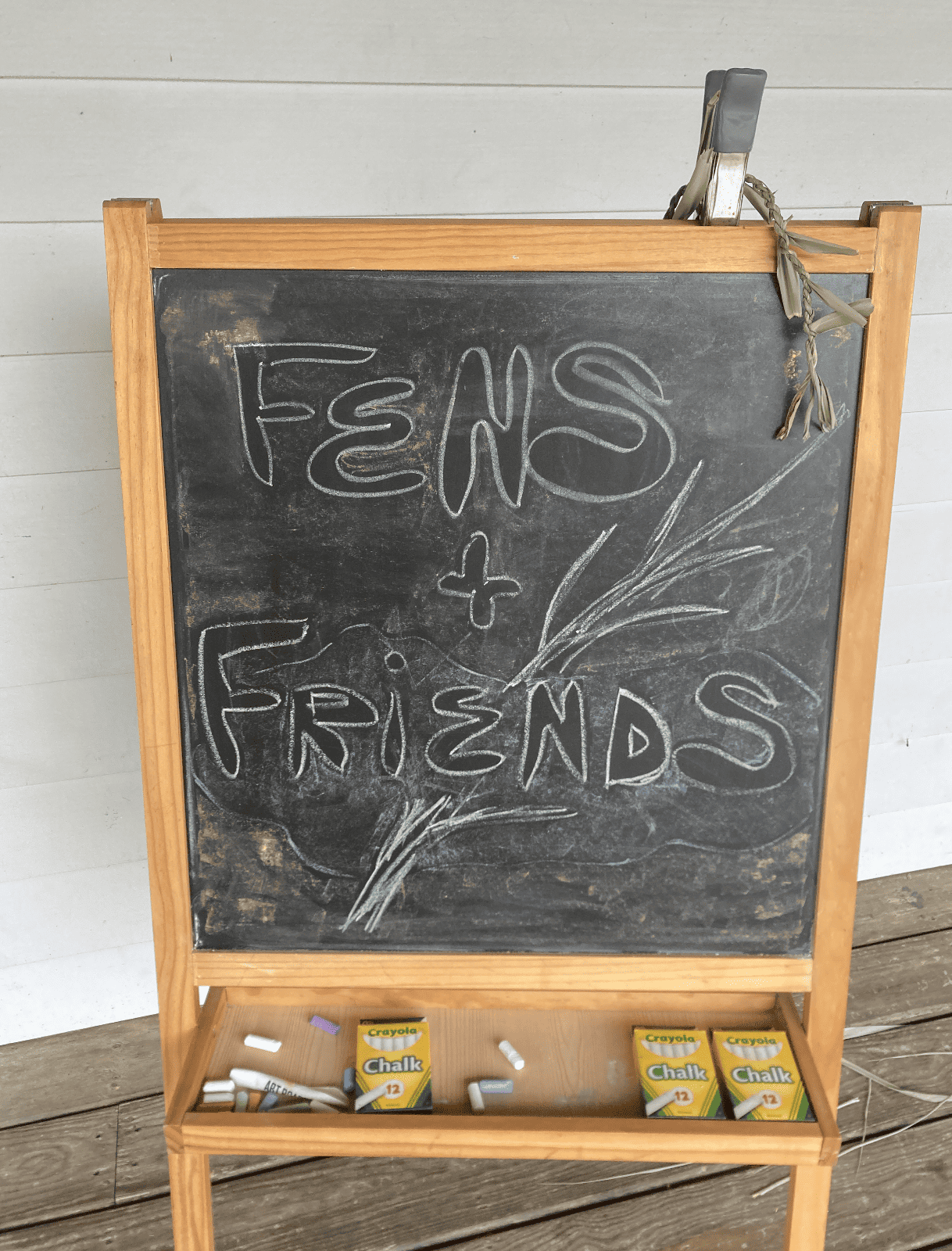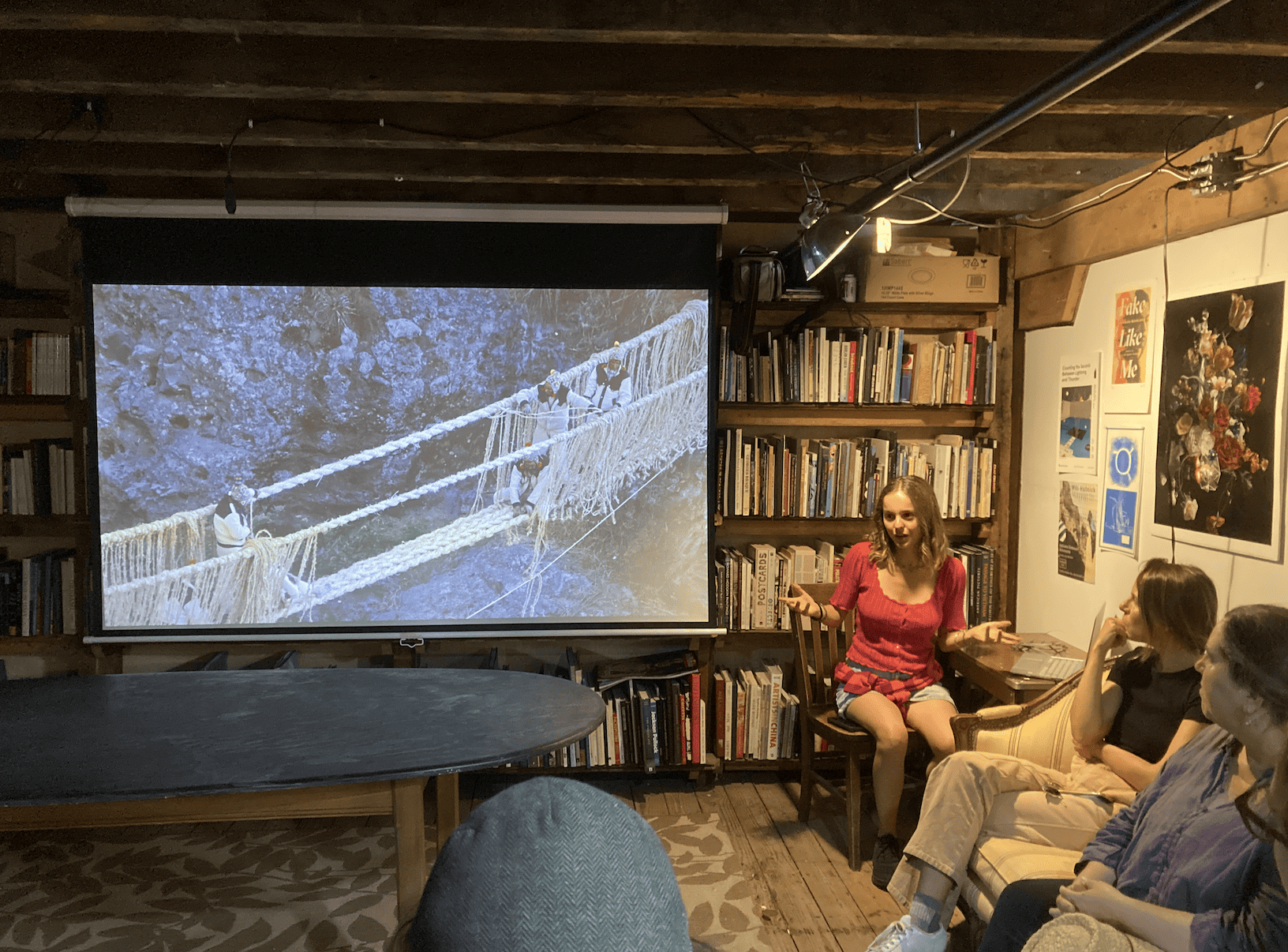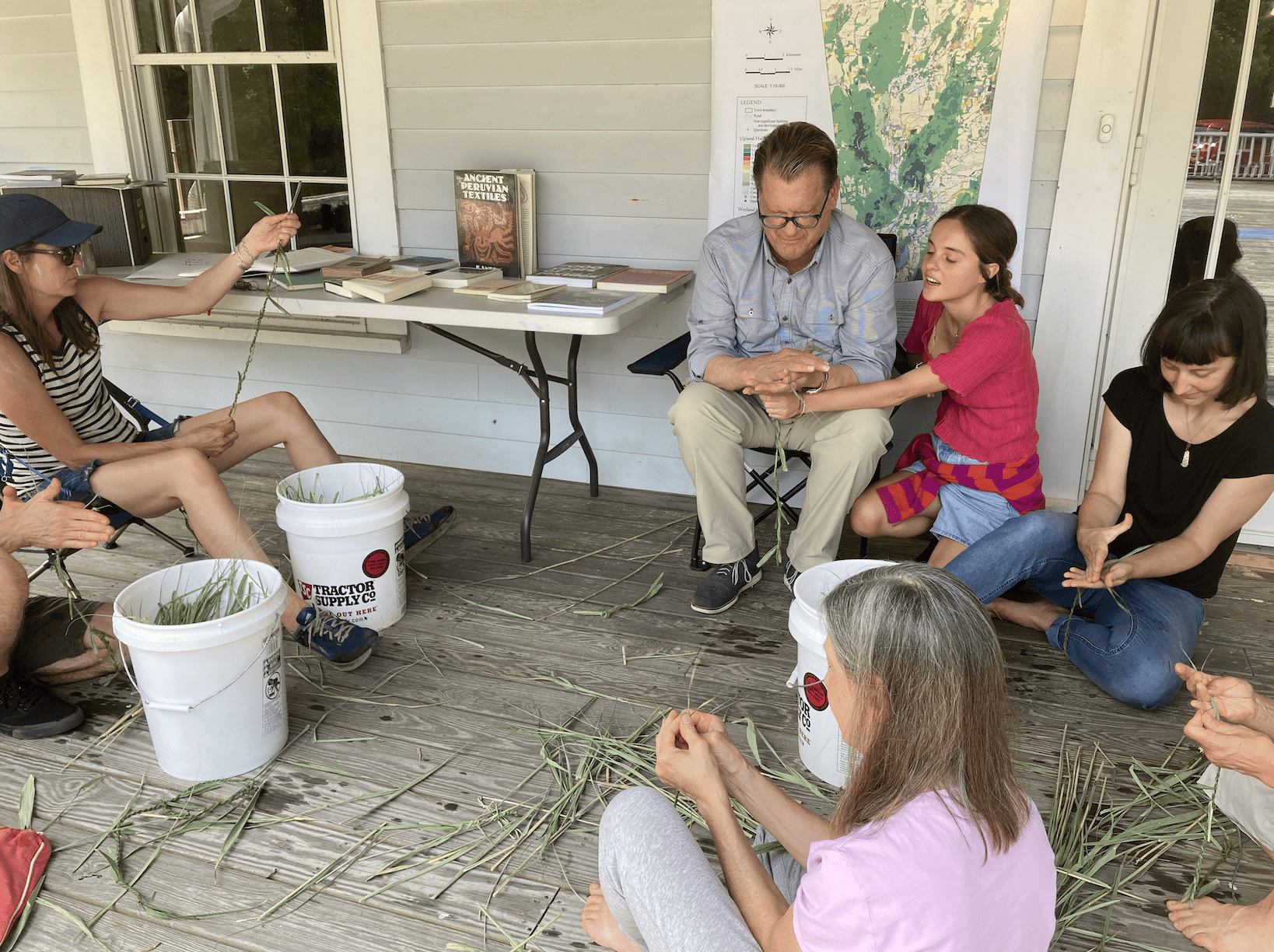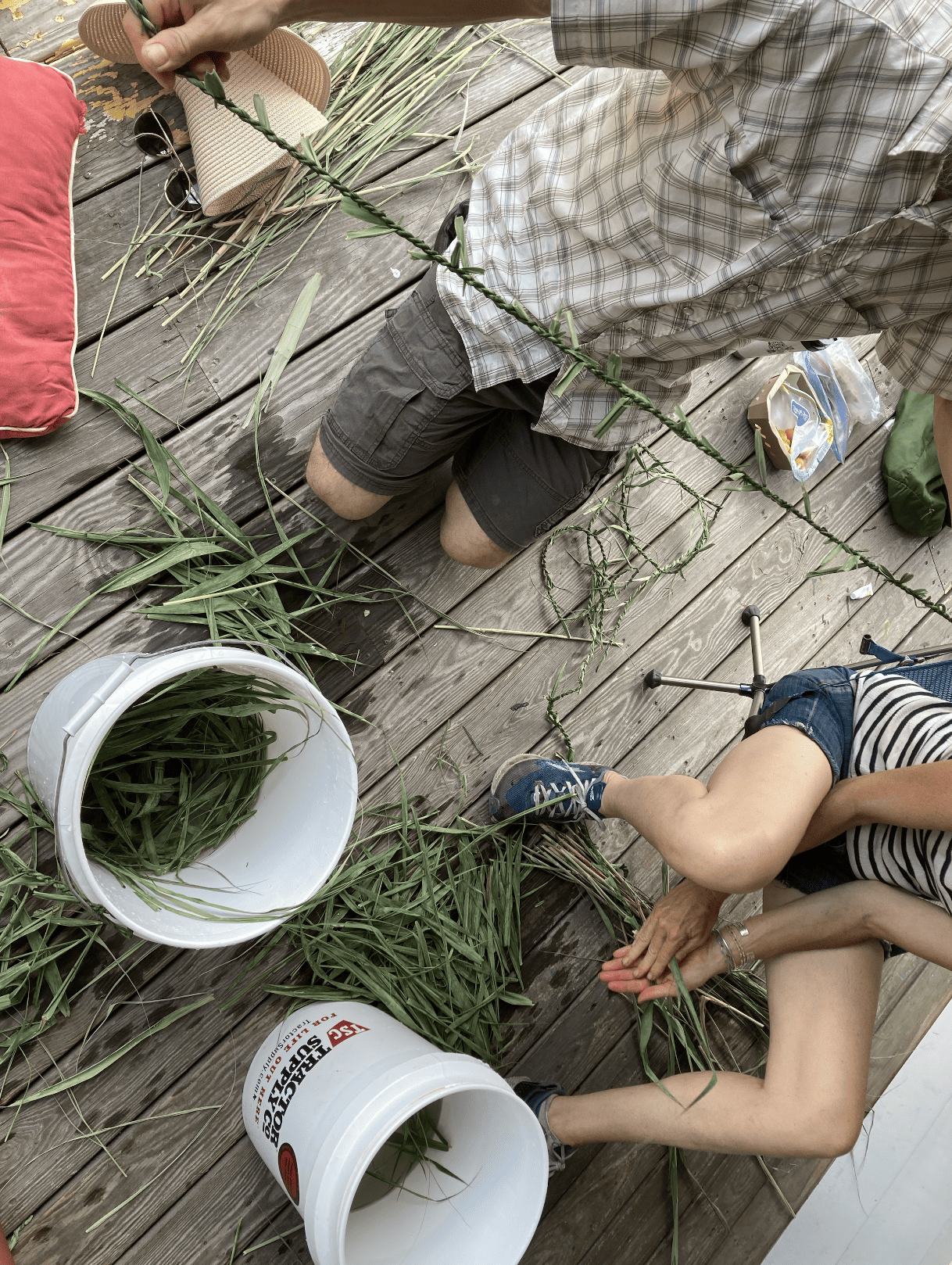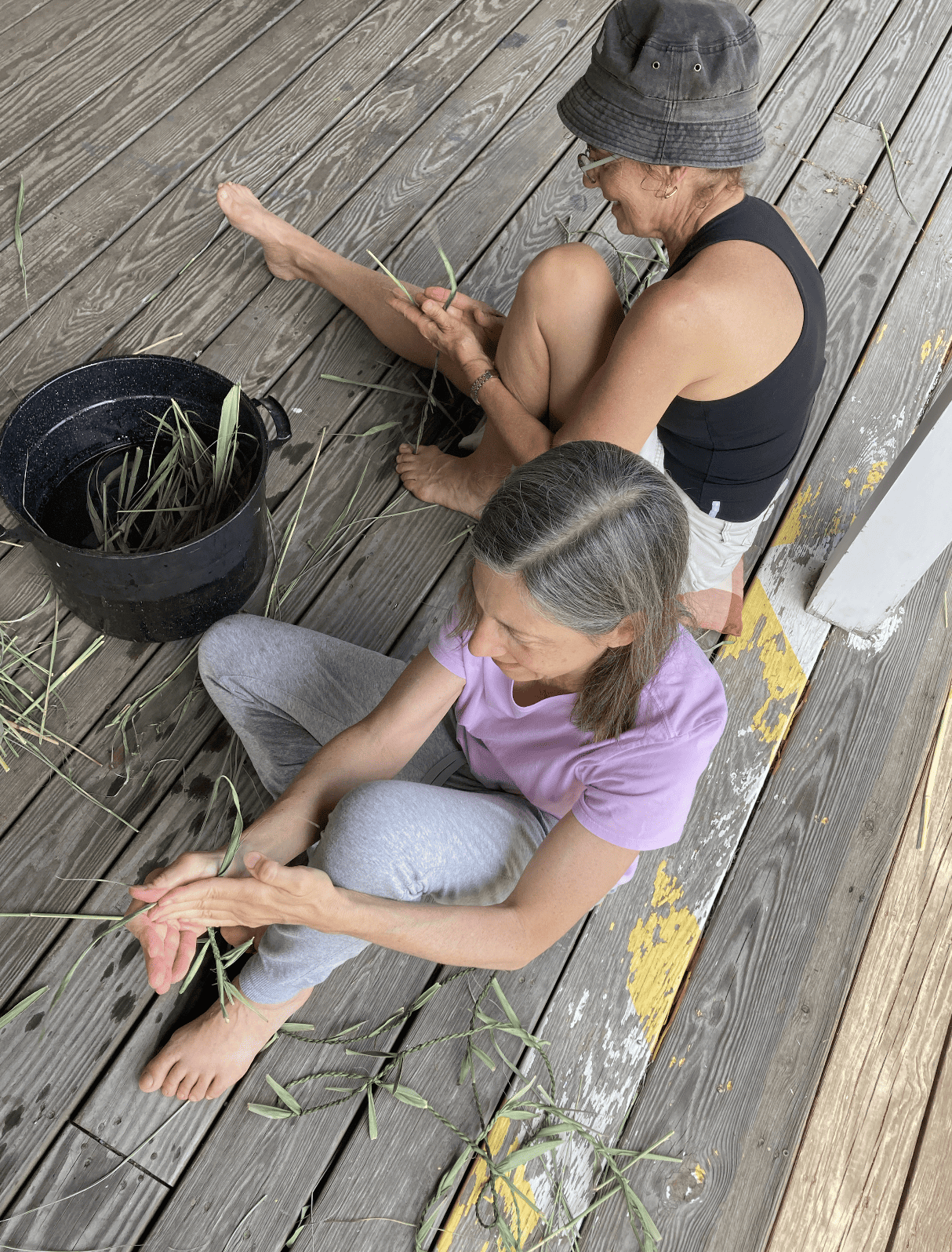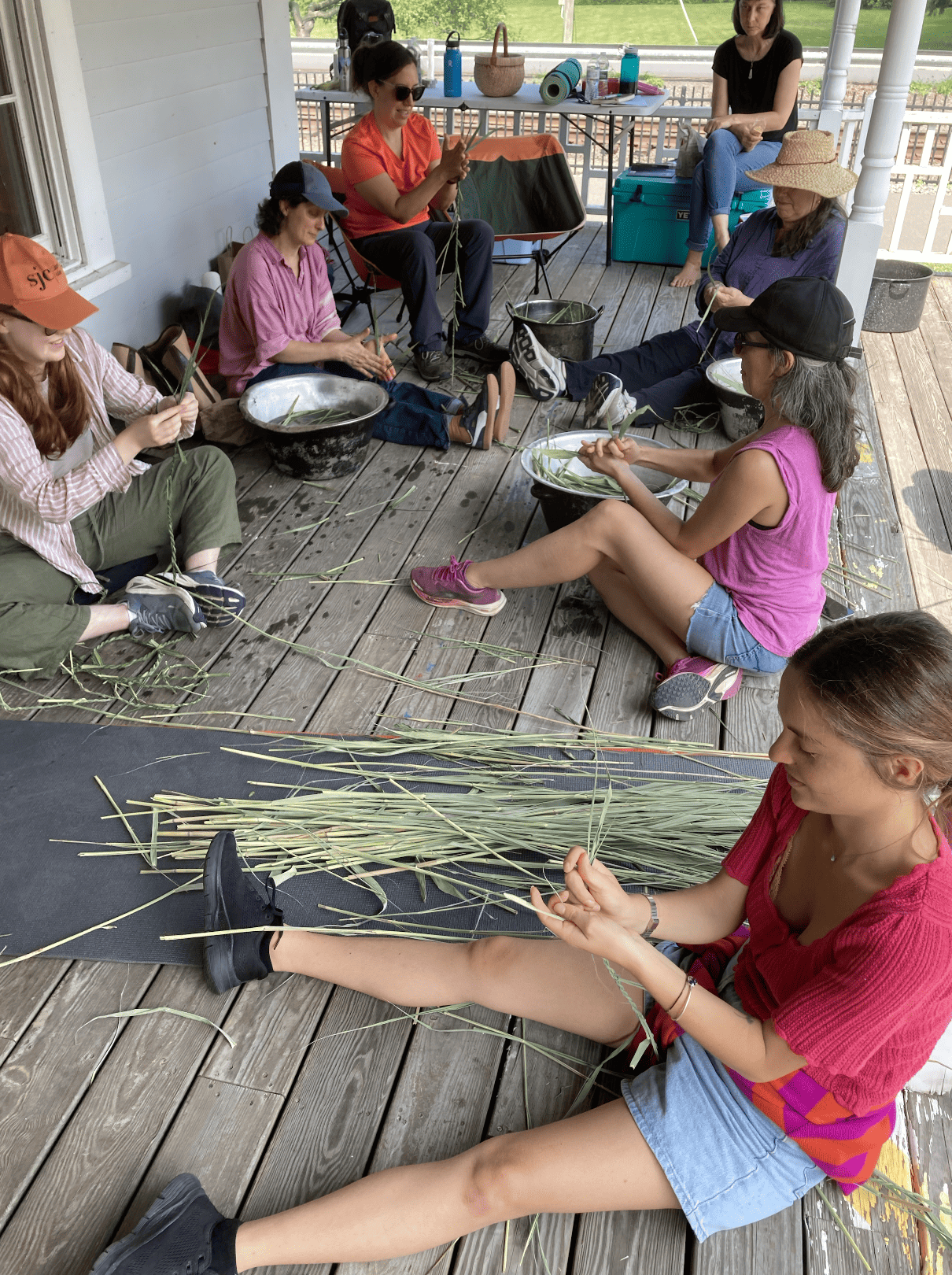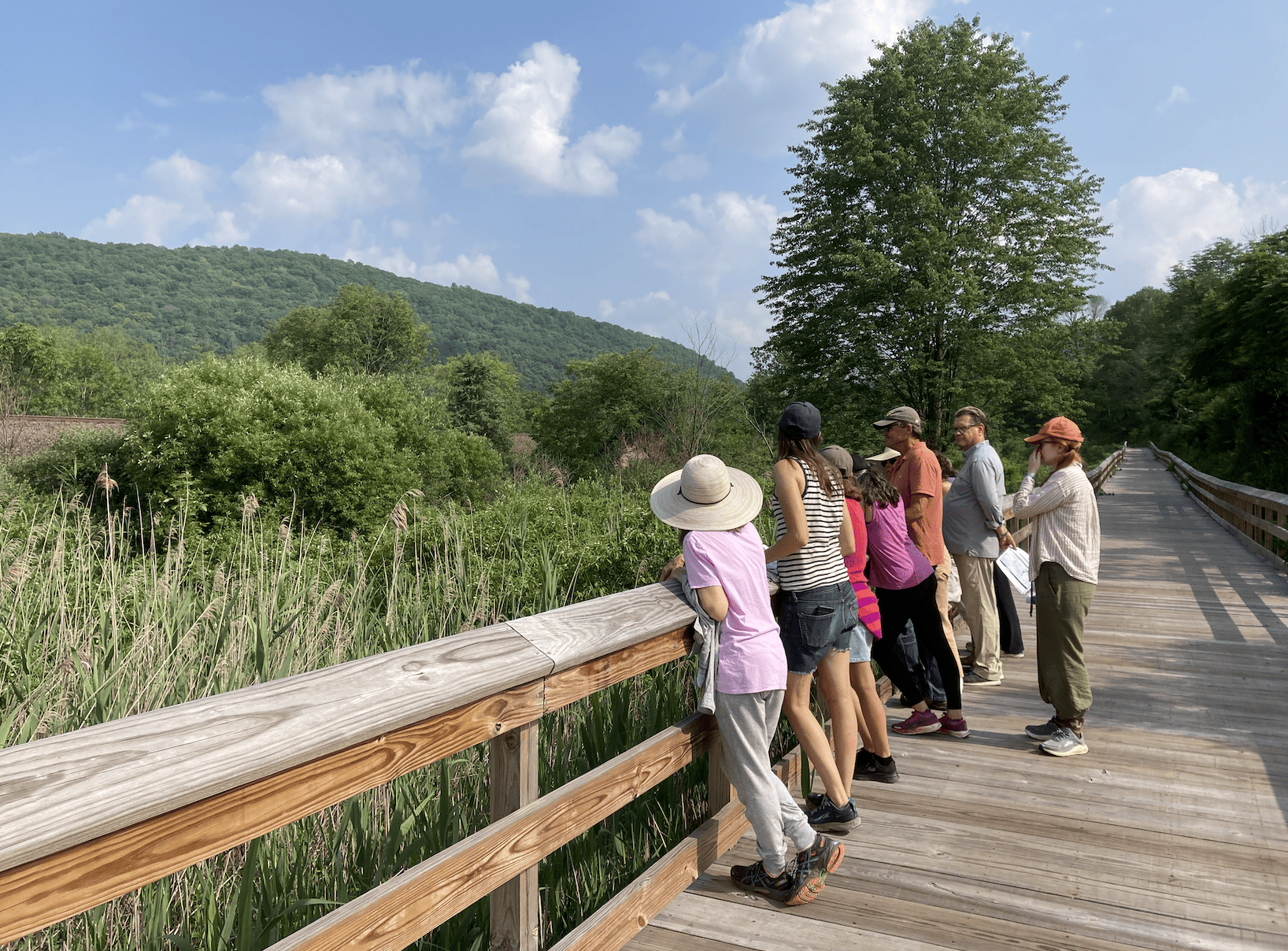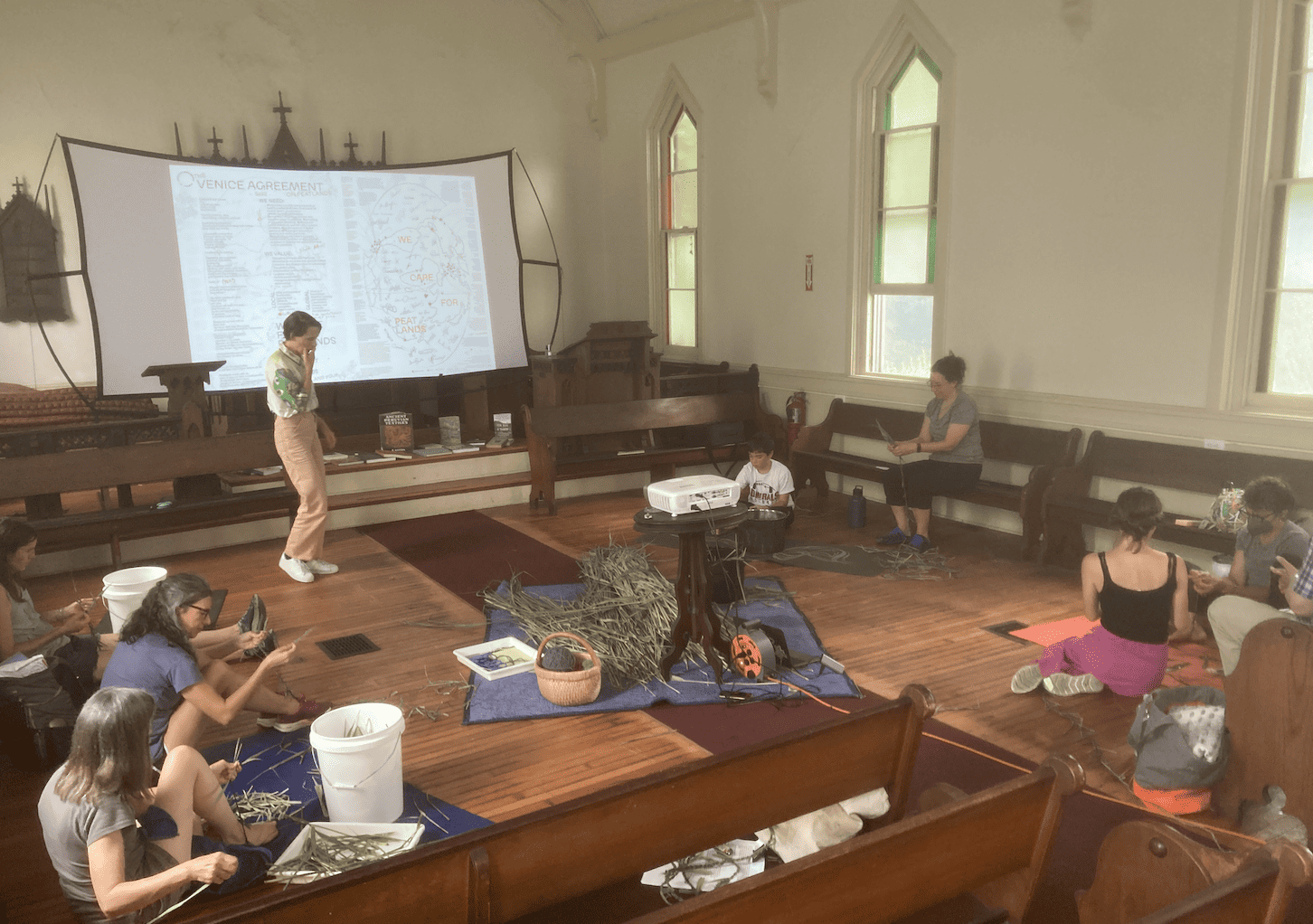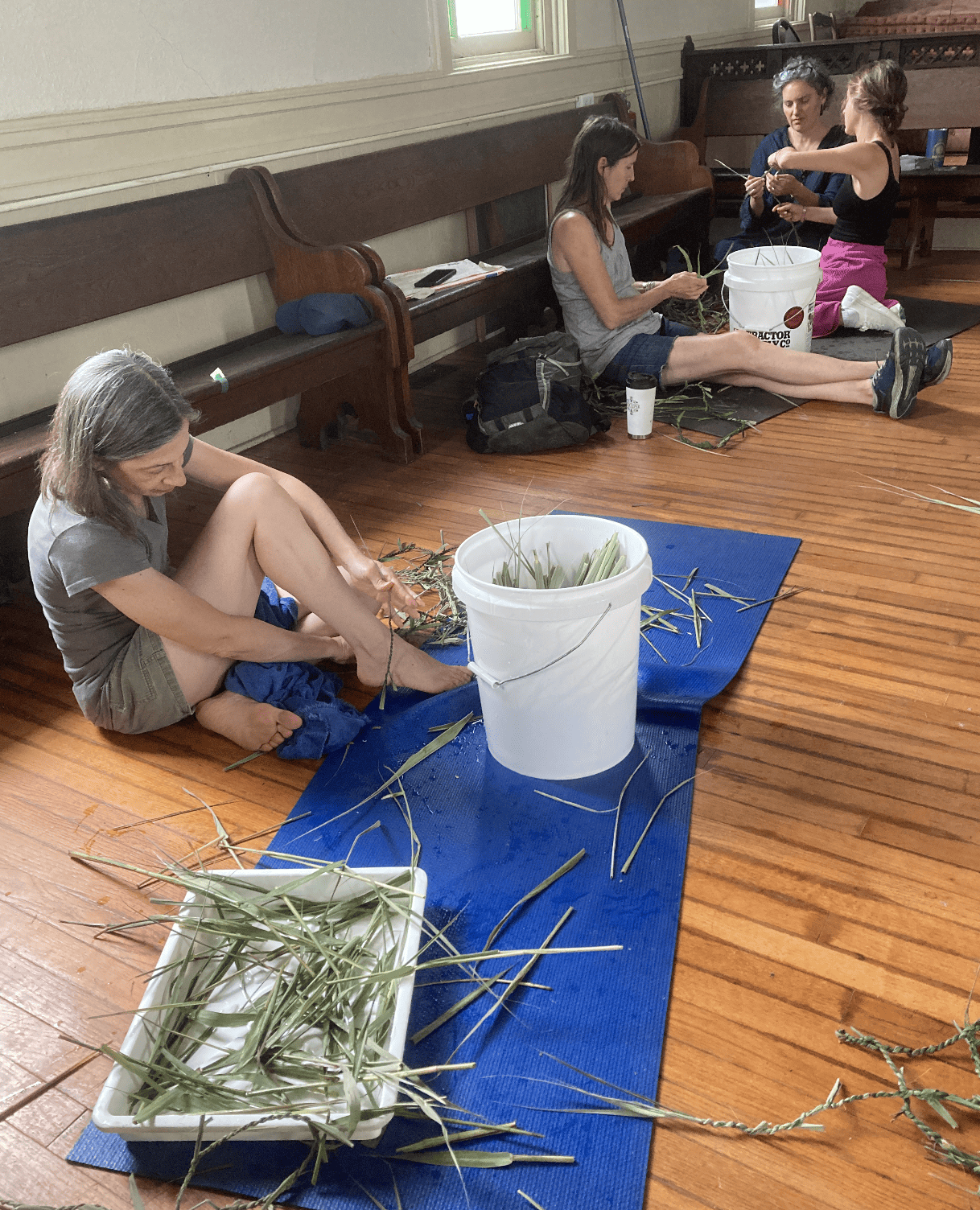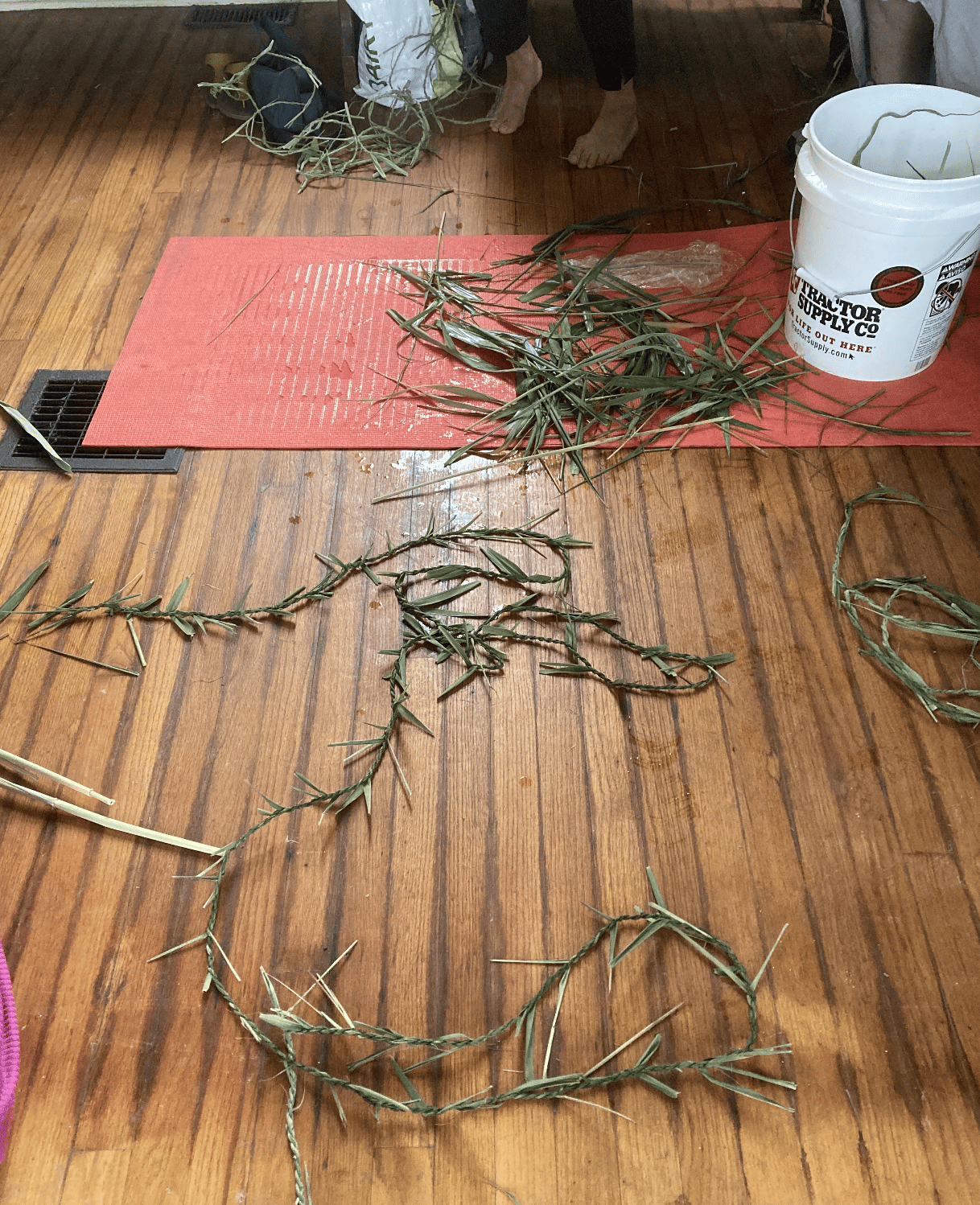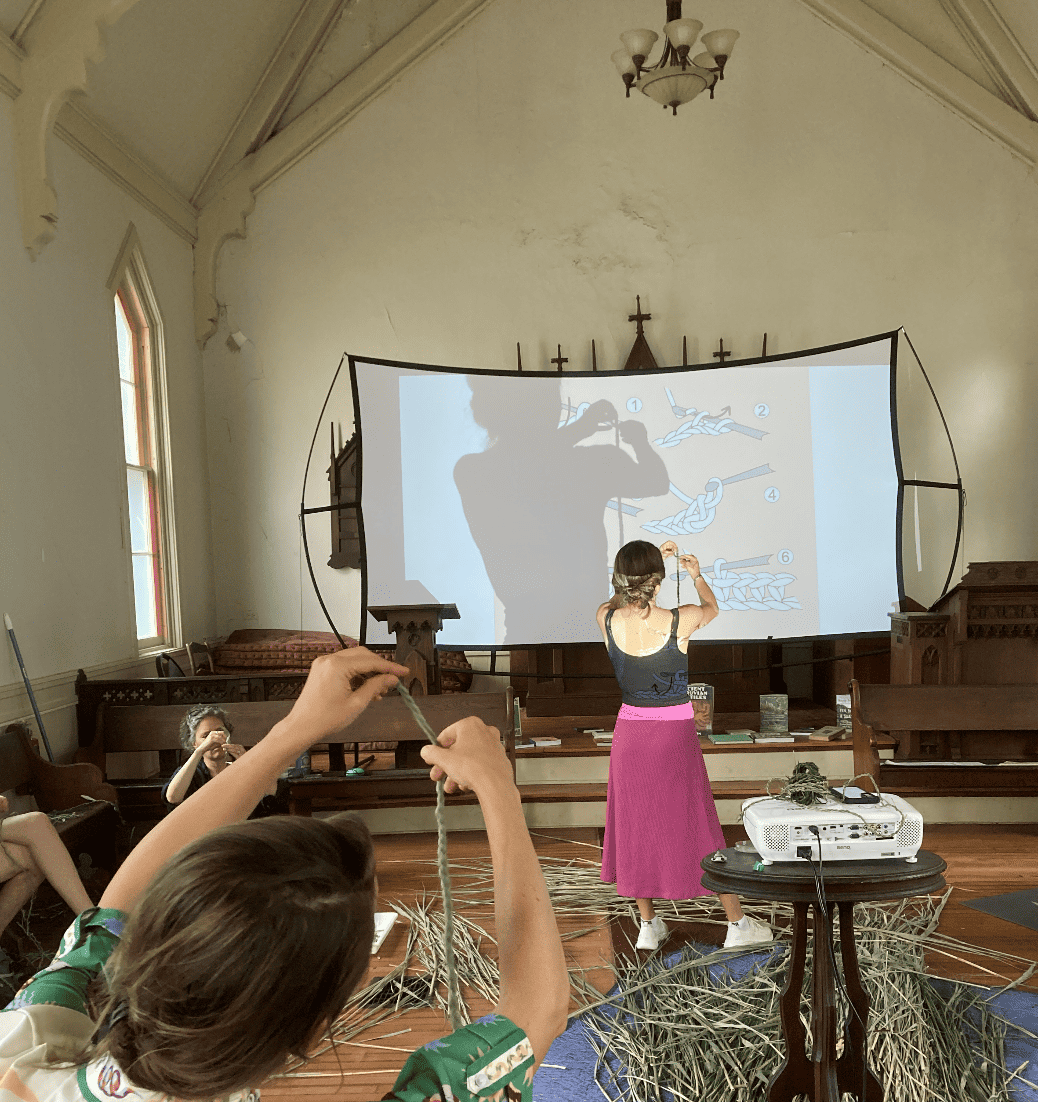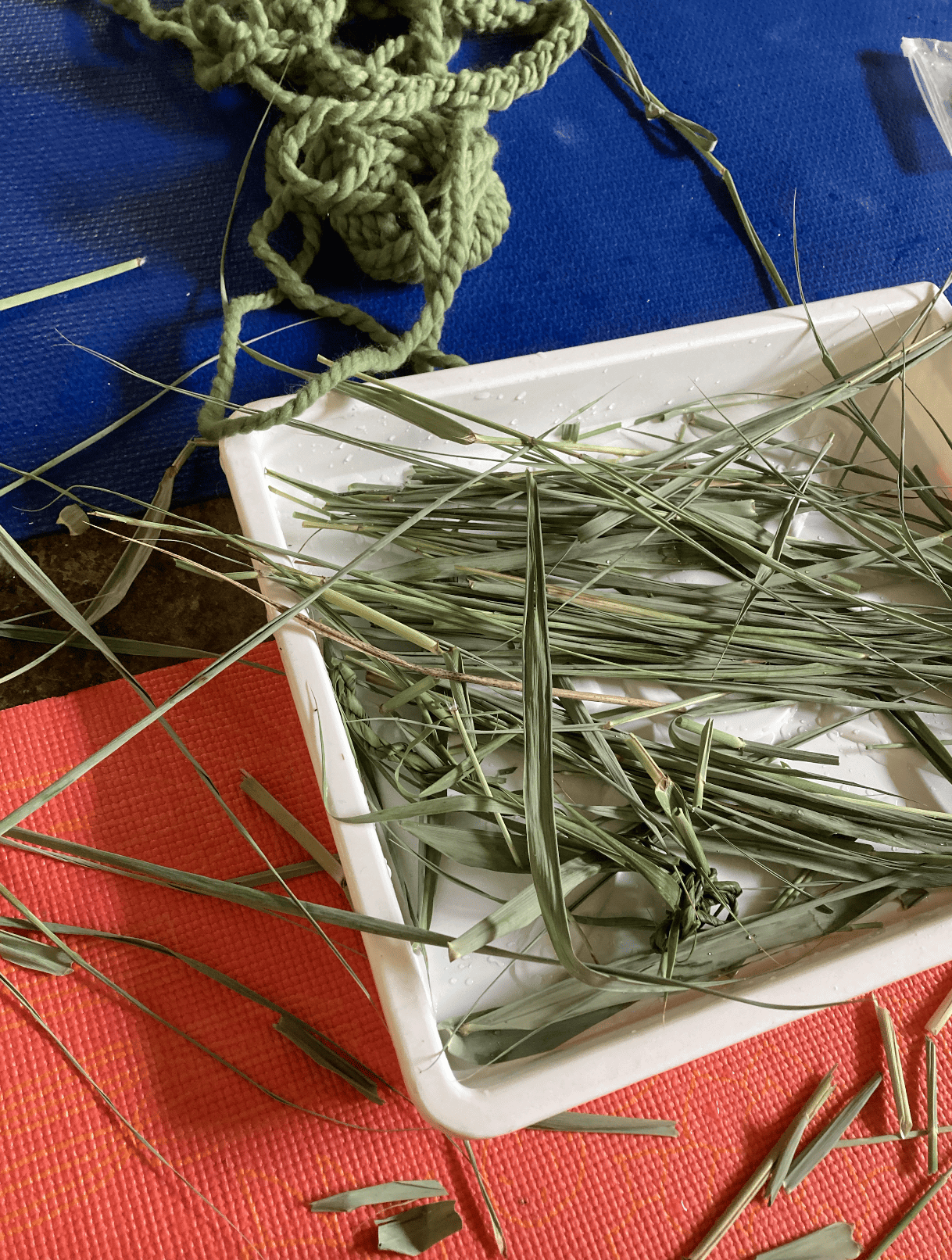Ensayos collaborated with the Wassaic Project and the Town of Amenia’s Conservation Advisory Council and Climate Smart Task Force to offer the Fens & Friends workshop on June 29 and 30, 2023. The workshop enacted the Venice Agreement’s call to protect global peatlands at the local level.
Amenia is home to thirteen kinds of wetlands, including fens and circumneutral bog lakes, both of which are peat producing. It is important to get to know and conserve peatlands because, although they cover just 3% of the world’s surface, they capture more carbon than all of the Earth’s terrestrial forests combined. Much of Amenia’s wetlands are covered by a hybirdized, invasive plant called Phragmites australis (common reed), which colonizes the wetlands and crowds out native plants. Although Phragmites causes problems for the ecosystem as a whole, it is also peat-producing. The Fens & Friends workshop gave participants the opportunity to get to know part of the wetland along Wassaic Creek intimately. We learned to spin Phragmites leaves that were harvested from that wetland into cordage, and in the process we practiced thinking-through-making, weaving in new connections and knowledge about how wetlands function and the international significance of protecting the watershed in our own back yard. The group of participants included teachers, gardeners, and weavers.
Our teacher was Alejandra Ortiz de Zevallos, an artist based in Lima, Peru, who has adapted an ancestral cordage-making technique used for millennia to create Inca rope bridges. She teaches this technique as part of her experimental weaving practice and often uses the leaves of Phragmites plants harvested from streams and ditches in Lima, Peru, where it is also a non-native colonizer. Alejandra connected with Ensayos through her studies at the University of New Mexico’s Confluence MFA program, where Christy Gast and Camila Marambio of Ensayos are professors.
Dr. Stuart Findlay of the Cary Institute of Ecosystem Studies led the group on a walk to identify Phragmites and discuss the ecology of the wetlands around Wassaic Creek. The group noticed how resilient the Phragmites is, as it pushed up through an asphalt parking lot of the Wassaic Train station and colonized the swale. In the wetland, it was evident that the Phragmites was spreading and that areas that hadn’t been colonized had far greater plant diversity–native cattails, sedges, milkweed, goldenrod, spicebush and jewelweed abounded as well as non-natives like honeysuckle and mugwort. The group discussed the ethics of human intervention and different management strategies including chemical versus physical barriers, and eco-cultural encounters.
Camila Marambio, the founder of Ensayos (curator, based in Puerto Rico) led a presentation and discussion on the Venice Agreement as the group practiced the cordage technique. On the second day of the workshop, the air was thick with smoke from the wildfires far north in Quebec, Canada. The fires are burning in forests as well as peatlands, releasing millennia of stored carbon into the atmosphere. The first day of the workshop was held outdoors and the second was moved inside due to the low air quality.
At the opening of the second day, when the group worked inside the historic Gridley Chapel, organizer Christy Gast opened with a reflection on belonging, community and adaptability building through the lens of “queering” language, practices and places. The two days were passed in meditative work and deep conversations about ecology, the value in connecting science and art, ancestral maker practices, and community-building. Making the q’eswa or rope is an opportunity to slow down and pay attention to our bodies. After a couple of hours, the hands have memorized the twisting movement, each person at their own learning rhythm. We ended the workshop with beautiful art pieces made with care and with words of gratitude.
This program was supported in part by a New York State Council on the Arts Support for Artists grant.

